Early Life: Curiosity Sparked by Science
Guglielmo Marconi was born on April 25, 1874, in Bologna, Italy, into a well-off family. From a young age, he displayed a keen interest in science, especially the phenomenon of electricity and waves. His father, Giuseppe Marconi, supported his interests, while his mother, Annie Jameson, who came from the famous Jameson whiskey family, encouraged his studies. Marconi’s curiosity pushed him to explore how sound waves traveled and to experiment with the latest ideas in physics.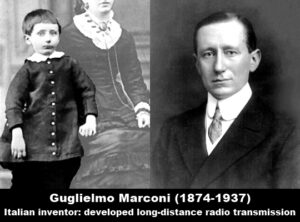
During his teenage years, Marconi became fascinated by the experiments of German physicist Heinrich Hertz, who had successfully demonstrated the existence of electromagnetic waves. These waves, Hertz showed, could travel through air, much like sound waves. Marconi saw potential in these findings. Could they carry messages across distances without the need for wires? He dreamed of wireless communication and became determined to make it a reality.
First Experiments and the Birth of Wireless Telegraphy
Marconi began his experiments in 1895, setting up equipment in the attic of his family’s home. With the limited technology available, he used a spark generator, a telegraph key, and a primitive antenna. Marconi sent signals across short distances and quickly achieved success in his first wireless transmissions. The device he constructed was simple, but it worked, marking the beginning of what would become wireless telegraphy.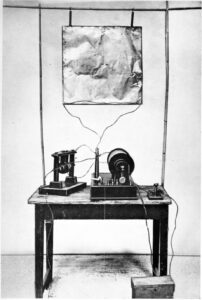
Driven by his early results, Marconi worked tirelessly to improve his system. Each day brought new challenges and discoveries, as he made small yet critical advancements. He soon increased the transmission range, achieving communication over a mile. Marconi realized that his invention had potential beyond scientific curiosity. Wireless telegraphy could revolutionize communication, making it possible to send messages without relying on cables, which were costly and fragile. However, his family and friends remained skeptical about his invention’s value, thinking of it merely as a hobby.
Journey to England: Securing Support and Success
In 1896, with no support in Italy, Marconi decided to take his work to England, a leading hub for technological innovation. He traveled to London with his mother, hoping to secure interest and investment. His dedication and charisma eventually attracted the attention of British officials. He demonstrated his wireless system for the British Post Office, impressing the authorities and winning their support.
Soon after, Marconi founded the Marconi Company in 1897, marking a turning point in his career. With financial backing, he set out to improve his wireless technology and expand its capabilities. In 1899, he transmitted a wireless signal across the English Channel, proving that his system could communicate over long distances. His success quickly made him a prominent figure in the scientific community, and his work gained worldwide recognition.
The First Transatlantic Transmission
In 1901, Marconi set his sights on an even greater challenge: sending a signal across the Atlantic Ocean. He chose Poldhu, Cornwall, as the transmission site and set up a receiving station in Newfoundland, Canada. On December 12, 1901, Marconi successfully received the letter “S” in Morse code, transmitted across 2,000 miles. This achievement proved that wireless signals could travel vast distances, defying those who believed that Earth’s curvature would block such transmissions.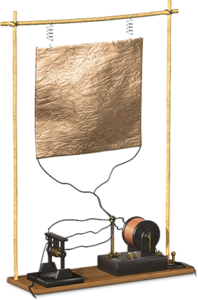
Marconi’s transatlantic success sparked international attention and marked a significant leap forward in global communication. People now saw the true potential of wireless telegraphy. Marconi’s work paved the way for modern radio, broadcasting, and even the development of radar. However, his triumph also inspired fierce competition, as other inventors and scientists began developing their own wireless technologies.
Impact on Maritime Safety: The Role of Radio in Saving Lives
Marconi’s wireless technology found a crucial application in maritime safety. In the early 1900s, ships at sea relied on wireless telegraphy to send distress signals and stay in contact with shore. Marconi’s company equipped many vessels with his radio systems, including the ill-fated RMS Titanic. When the Titanic struck an iceberg in 1912, its wireless operators sent out distress signals using Marconi’s equipment. Nearby ships received these messages, aiding in the rescue of over 700 survivors.
Following the Titanic disaster, the importance of wireless communication became clear. International regulations soon mandated radio equipment on passenger ships, enhancing maritime safety. Marconi’s work had saved lives and demonstrated the practical, life-saving impact of radio technology. The invention proved essential in emergencies and established Marconi as a true pioneer in global communication.
Later Years and Lasting Legacy
As Marconi aged, he continued to explore new ideas in radio and communication technology. He experimented with shortwave radio, realizing its potential for long-distance broadcasting. His dedication to innovation never wavered, and he became an influential figure in international wireless communication. Marconi received numerous awards, including the Nobel Prize in Physics in 1909, which he shared with Karl Ferdinand Braun.
Marconi’s work laid the foundation for the modern radio, broadcasting, and even mobile communication. His invention transformed how people connected across the world. Although Marconi passed away in 1937, his legacy lives on. Every radio, smartphone, and wireless device traces its origins back to Marconi’s groundbreaking work. His contributions continue to inspire new generations of scientists, engineers, and communicators.
Invention Story: The Complete Timeline
| Full Name | Guglielmo Giovanni Maria Marconi |
|---|---|
| Born | April 25, 1874, Bologna, Italy |
| Died | July 20, 1937, Rome, Italy |
| Nationality | Italian |
| Education | No formal degree but studied science privately and with tutors |
| Known For | Invention of radio communication, founder of Marconi Company |
| Key Inventions |
|
| Major Awards | Nobel Prize in Physics (1909), numerous international honors |
| Influence | Laid the foundation for radio, broadcasting, and global communication |
| Legacy | Inspired modern wireless technology, with impact on radio, TV, and mobile communication |
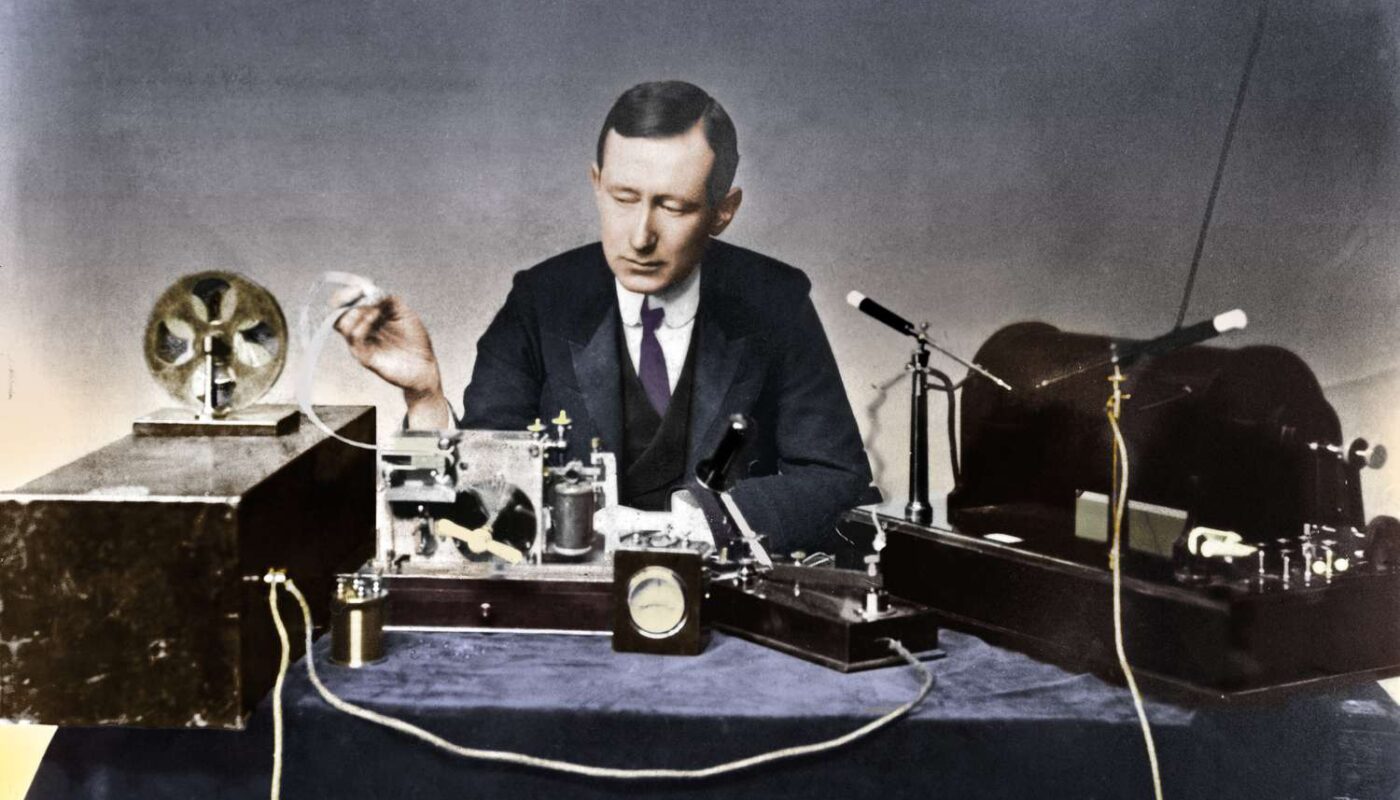
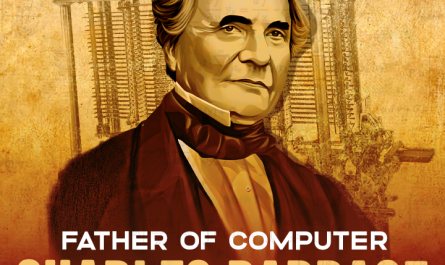

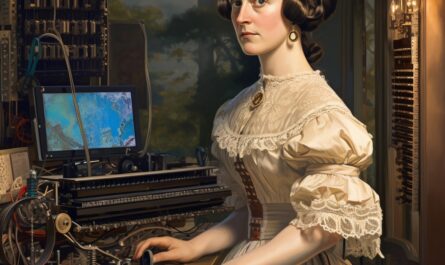
Thank you for writing this post! http://www.hairstylesvip.com